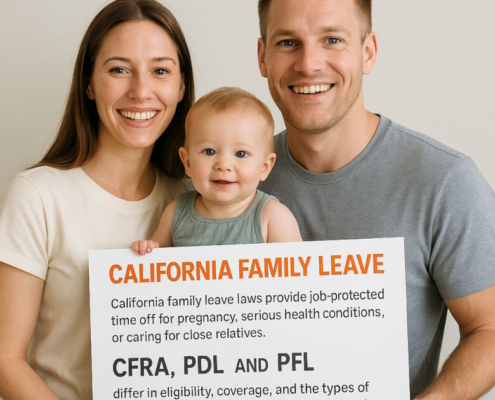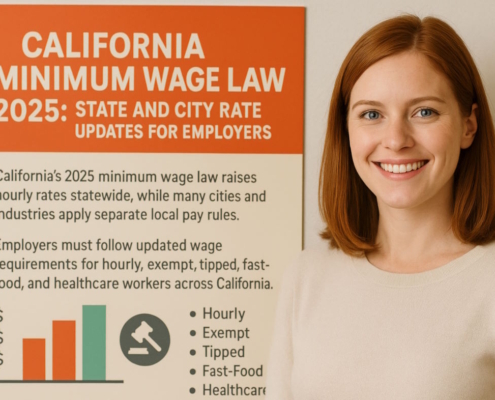Can employers call your doctor?
When an employee informs their employer about their illness, the company might request a doctor’s note as proof of the sickness. But this prompts an important question: is it permissible for an employer to ask for a doctor’s note when an employee is allowed multiple personal days off in addition to sick leave? Even with a doctor’s note, employers occasionally doubt that you have an injury or suspect you are overstating your injury. It is essential for an employee to understand their legal rights concerning work absence due to illness and how this might impact their employment.
When an employee needs to take leave because of poor health, they might be required to give their company a doctor’s note. The Health Insurance Portability and Accountability Act of 1996 (HIPAA) is a federal law that establishes national guidelines to safeguard sensitive health data for patients. This legislation prohibits information from being shared without the patient’s authorization or awareness. The U.S. Department of Health and Human Services (HHS) issued the HIPAA Privacy Rule to implement the requirements of HIPAA and to uphold the rights of patients. The HIPAA Security Rule protects a subset of information covered by the Privacy Rule. This legislation ensures a person’s health data is protected while simultaneously promoting an open channel that allows the health information to flow freely.
Why Might Your Employer Contact Your Doctor?
Employers sometimes contact doctors to verify a doctor’s note or sick leave information. While legal, requesting private details about a medical condition without an employee’s consent violates employee rights. For jobs requiring physical strength, some companies implement policies to confirm employees’ medical histories to ensure fitness for the role, mitigating health and safety risks. These practices are more common than one might think.
The circumstances dictate whether your employer can reach out to your physician about your private health details without your approval. Employers are permitted to contact a doctor’s office without an employee’s consent for specific reasons:
- To adhere to workers’ compensation statutes
- To confirm your health doesn’t endanger you or colleagues
- To verify your health doesn’t impair job performance
- To record your fitness level
- To obtain repayment for medical treatments they covered
- To validate a doctor’s certification
Disclosures Without Individual Authorization can happen in several instances. They include:
- When workers’ compensation laws or other similar programs that provide health benefits authorize them to do so
- When a state or other regulation requires the disclosure
- To obtain payment for healthcare services an entity provided to an injured or sick employee
Can an Employer Verify a Doctor’s Note?
The short answer is yes. Though uncommon for short-term leave, employers have the right to confirm a doctor’s note under the Family and Medical Leave Act (FMLA) if the leave is for a serious health condition. In such cases, employers are likely to contact the doctor to confirm the certification. However, this verification process is typically limited to the initial request for leave.
Proof of an injury or illness detailed in a doctor’s note should be enough to satisfy employers. However, companies are allowed to call a medical provider without an employee’s authorization. Luckily for the employee, there are various privacy laws in place that serve to protect an individual’s medical data when an employer tries to verify an injury or sickness with a doctor.
Under FMLA and HIPAA, an employee’s medical information is protected, and employers generally cannot ask for specific details about medical conditions or copies of medical records. The HIPAA requires that covered entities only disclose the minimum medical information necessary to accomplish workers’ compensation purposes. This includes the minimum amount of information necessary for payment purposes.
Does My Employer Have to Follow My Doctor’s Orders?
Yes, your employer absolutely has to follow your doctor’s orders. Not only can your employer face fines otherwise, but your injury may worsen and they may end up with a lawsuit on their hands. After your initial treatment, your doctor will put together a recovery plan for your injury. If your employer can accommodate you at a different position in the workplace, they should do so.
HIPAA and Workers’ Compensation
The Office of Civil Rights (OCR) under HHS states that the Privacy Rule doesn’t apply to the following workers’ compensation entities:
- Administrative agencies
- Employers
- Insurers
Workers’ compensation insurance is compulsory in the U.S. Healthcare providers usually give the information to the worker’s compensation entity because the Privacy Rule recognizes their need to access it. The Privacy Rule allows providers to disclose health information in three ways:
- As authorized by and to the extent necessary to comply with laws relating to workers’ compensation;
- If such a disclosure is required by any other state or federal law;
- To obtain payment for any health care provided to the injured or ill worker.
Conclusion
While employers can call your doctor in certain circumstances, several laws protect just how much information your employer can access from your healthcare provider. Understanding your rights under HIPAA, FMLA, and related laws is critical for navigating workplace absences due to health issues. If your employer unlawfully accessed your personal health information, it’s best to seek legal counsel to protect your rights and secure appropriate recourse.































